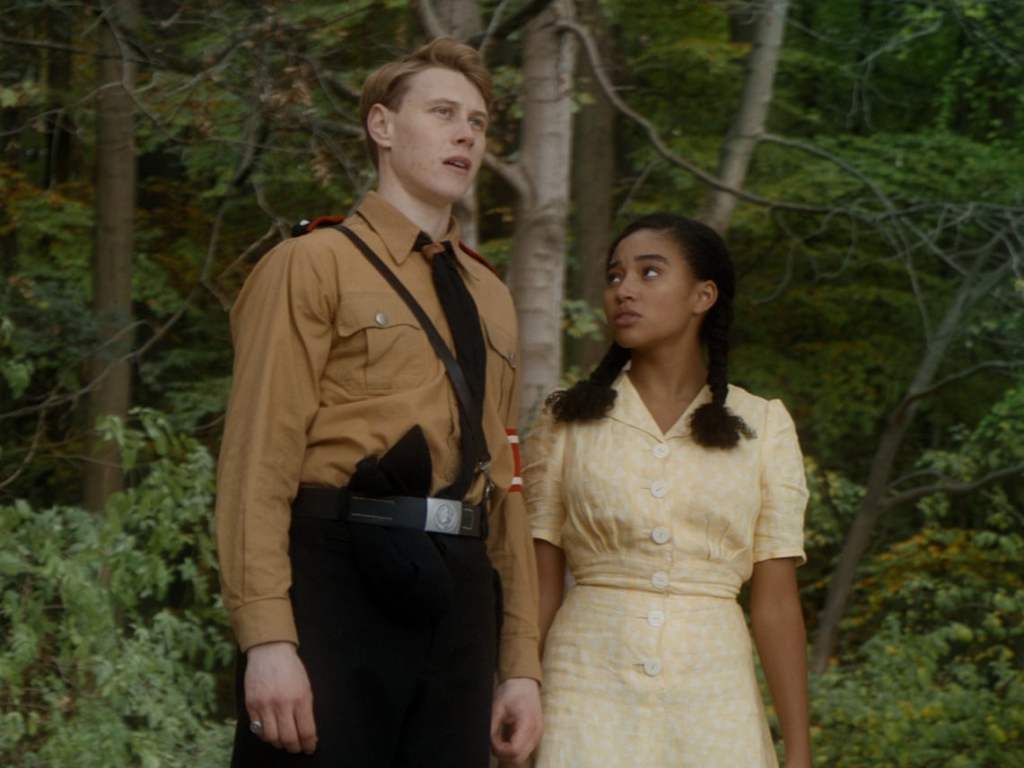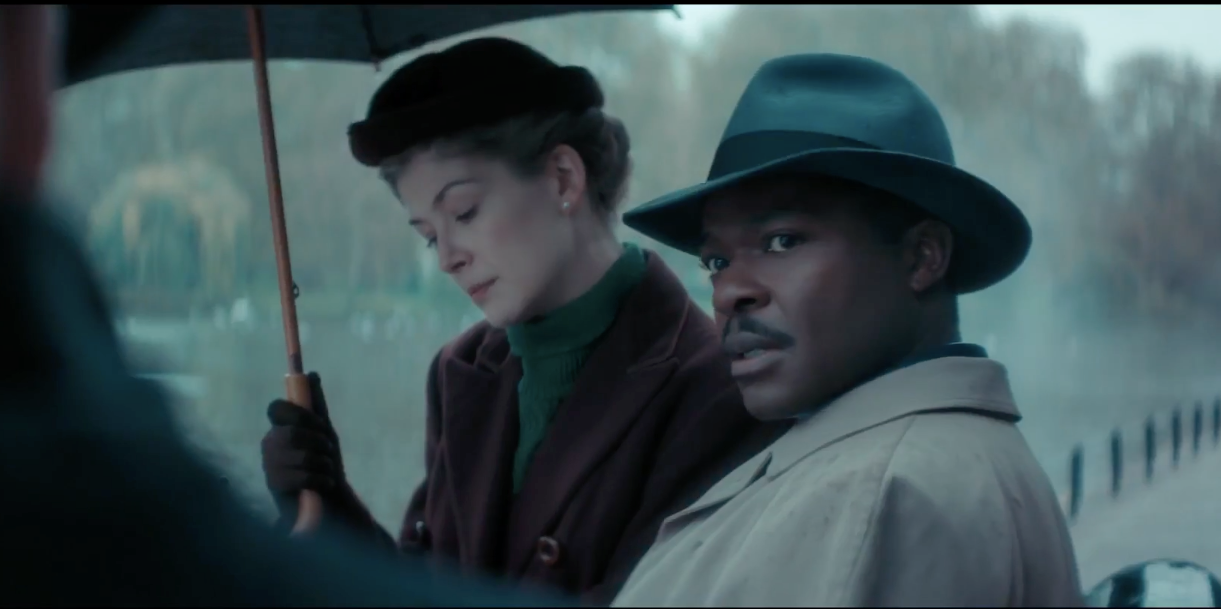Leyna (Amandla Stenberg) is the only person of colour in her village. She’s aware of that fact, of course, all too aware, but it’s not until her 16th birthday when her difference starts to truly matter, so her mother packs her and little brother Koen up and takes them to Berlin where they can be ‘invisible.’ But Berlin isn’t any safer for a biracial girl in 1944. Leyna and her family live in fear, and Leyna’s mother Kerstin (Abbie Cornish) is so desperate she sacrifices her relationship with her own family to obtain some false papers for her daughter, papers that promise Leyna will never commit the crime of racial mixing with a German aryan, papers that claim she has been sterilized.

Koen joins the Hitler Youth, compulsory for every aryan boy, and his mother is trying her best to temper the hate he learns there with the values and morals of home. As for daughter Leyna, Kerstin is just trying to keep her alive, a feat made more difficult after Leyna falls in love with Lutz (George MacKay), himself a member of the Hitler Youth, and the son of a prominent SS officer. This could get them both killed – it has become obvious that the Nazis aren’t just hunting Jewish people, but anyone deemed “impure.”
There’s obviously an interesting story in there somewhere, but the script by writer-director Amma Asante doesn’t quite sniff it out. Possibly the best thread to follow would be that of Kerstin’s relationship with her children, both rebellious in their ways, and her struggle to balance her beliefs with what will keep the family safe, not unlike Scarlett Johansson’s Oscar-nominated turn in Jojo Rabbit.
Instead we experience the world from Leyna’s perspective. Amandla Stenbert does good work, but Leyna is a teenager, confused and confident at the same time. She insists she wants nothing more than to be treated like any other “good German,” which, considering the context, is kind of uncomfortable. Against the backdrop of millions of Jewish people being led to slaughter, it sort of feels like Leyna has shown up to a Black Lives Matter protest with a sign that reads “All Lives Matter.” Leyna’s youth sees only injustice against herself, and her lack of awareness or irony starts to feel worryingly tone deaf.
The increasingly improbable love story does little to recommend itself and its compassion feels miserly and misplaced. Sean and I recently watched Schindler’s List (he for the first time), a perfect reminder that there are plentiful and worthier movies on the subject, ones that manage to paint a fuller and more accurate picture.

 to say who their love most angers: her family, his constituents, or the status quo. Interracial marriage wasn’t exactly popular in 1940s England, and her whiteness isn’t even the whole problem: her social status is far beneath that of a prince. But they marry anyway, anticipating disapproval, unprepared for the reality of the diplomatic firestorm and political tumult their marriage would actually entail. His right to the throne is threatened, as is her life. He is threatened with exile, she with ostracism. Still, they persist in their love, not just of each other, but for the people of the new Republic of Botswana.
to say who their love most angers: her family, his constituents, or the status quo. Interracial marriage wasn’t exactly popular in 1940s England, and her whiteness isn’t even the whole problem: her social status is far beneath that of a prince. But they marry anyway, anticipating disapproval, unprepared for the reality of the diplomatic firestorm and political tumult their marriage would actually entail. His right to the throne is threatened, as is her life. He is threatened with exile, she with ostracism. Still, they persist in their love, not just of each other, but for the people of the new Republic of Botswana. David Oyelow and Rosamund Pike play the lead roles and you couldn’t ask for a better acted movie. Oyelow is dignified as this humble prince, Pike strong and heart-breaking. They help strike a balance between the passion of their love and the stark reality of apartheid. It would be easy for one of these plot lines to swallow the other, but Asante manages float above it, entangling both, as would have been the case in real life.
David Oyelow and Rosamund Pike play the lead roles and you couldn’t ask for a better acted movie. Oyelow is dignified as this humble prince, Pike strong and heart-breaking. They help strike a balance between the passion of their love and the stark reality of apartheid. It would be easy for one of these plot lines to swallow the other, but Asante manages float above it, entangling both, as would have been the case in real life.